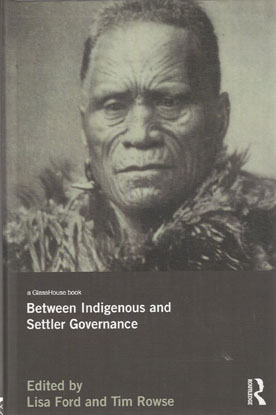
Between Indigenous and Settler Governance addresses the history, current development and future of Indigenous jurisdiction in four settler-colonial nations: Australia, Canada, New Zealand and the United States.
Bringing together emerging scholars, indigenous people, and leaders in the field of indigenous law and legal history, this collection offers a long-term view of Indigenous self-determination: the legal, political and administrative relationships between Indigenous collectivity and nation-states.
Placing historical contingency and complexity at the center of the past and present of indigenous self-governance, the papers collected here examine in detail both the process by which indigenous jurisdictions were dissolved by settler polities and the spaces left -- often unwittingly -- by that process, for indigenous survival and corporate recovery.
They emphasise both the promise and the limits of modern opportunities for indigenous self-governance; whilst showing how all the players in modern settler colonialism build on a shared and multifaceted past. Pursuing the argument that the principles and practices of indigenous self-determination are explicable in terms of the legal, philosophical and historical structures provided by settler colonial liberalism, and not merely sourced in indigenous tradition or a mythical past, Between Indigenous and Settler Governance will be invaluable to all those with interests in the future of settler-colonial nations.